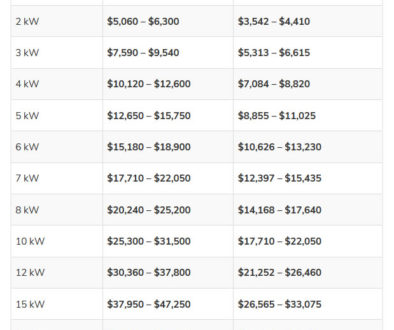Seven Facts About Solar Energy
Here are seven facts that tell a lot about where solar energy is going. They may even change your opinion of the industry’s long-term potential.
One hour
Every hour there’s enough solar energy hitting the Earth to replace all other energy sources humans use. All natural gas, coal, oil, wind, and biomass energy consumption could be replaced in just one hour. Put another way, if we could capture just 0.01% of all solar energy hitting the Earth’s surface each year, we could replace all other fuel sources.
586.4 gigawatts
According to the International Renewable Energy Agency, there were 586.4 gigawatts (GW) of grid-connected solar in the world at the end of 2019, enough to power 111.4 million U.S. homes.
3.2 cents
A levelized cost of energy analysis by Lazard estimates that the unsubsidized cost of electricity from utility-scale solar energy is now between 3.2 cents and 4.2 cents per kilowatt-hour (kW-hr). For comparison sake, natural gas is 4.4-6.8 cents per kW-hr, coal is 6.6-15.2 cents per kW-hr, and nuclear energy is 11.8-19.2 cents per kW-hr. There’s no question solar energy is cost-effective on a large scale.
1,046%
According to the U.S. Energy Information Administration, solar electricity generation has grown 1,046% since 2010 to 1,043 trillion BTUs in 2019. And this figure may actually understate the industry’s growth because the EIA has not until recently accounted for rooftop solar, only utility-scale solar.
$2.91
The average cost per watt of residential rooftop solar after tax credits is $2.91 in the U.S., according to Energy Sage. That’s down 20% in the last five years. Not surprisingly, costs can be significantly lower in some states, with Arizona leading the way at about $2.50 per watt.
$0.20
According to Wood Mackenzie, a commodity multicrystalline silicon solar panel costs just $0.20 per watt globally, or $0.21 per watt in the U.S. Higher-efficiency mono-PERC modules cost a bit more ($0.41 per watt in the U.S.). That’s down over 99% from about $30 per watt in 1980.
Did you know solar energy is cheaper than natural gas right now?



